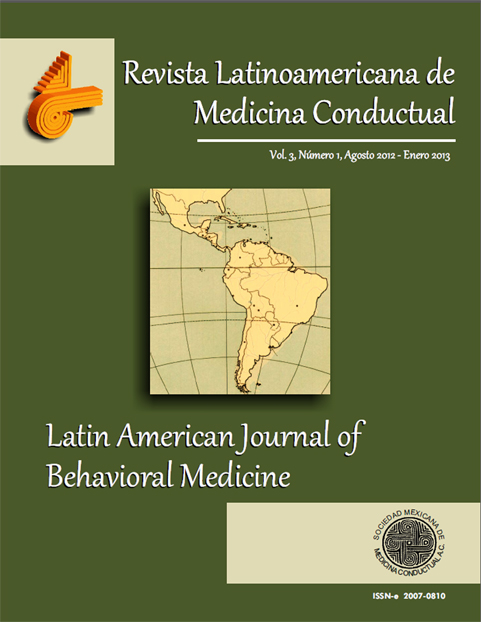Proposal of a cognitive-behavioral and positive psychology intervention for children with cleft lip and palate
Main Article Content
Abstract
Congenital Anomalies (CA) in Latin America are responsible for more than 20% of deaths that occur in theperiod of 0- 4 years of life, and may result in long-term disability, which may lead to negative emotional,individual, familiar, social and economic impact. In particular Cleft Lip and Palate are among the mostcommon CA and individuals with this condition may encounter problems in areas, such as feeding, speech,hearing and social integration, which can be treated with a multi-disciplinary team. The aim of this reportwas to present the case study proposal of a cognitive-behavioral intervention with support of positivepsychology strategies for an 11 years old boy, with a cleft lip and palate. The boy was evaluated with ahealth behavioral interview, self-report, and functional behavioral analysis for the case formulation(Clinical Pathogenesis Map, Clinical Strengths Map and Goal Attainment Map). He participated in 20sessions based in the “Optimistic Game”. The results had shown clinical changes in the emotionalregulation, attributional style (pessimistic vs optimistic) and behavioral goals (social skills, healthbehaviors). These improvements allowed the expression of Positive emotions, Engagement, positiveRelationships, Meaning and Accomplishment that are the components of the PERMA model in PositivePsychology.
Article Details
How to Cite
Valencia-Ortíz, A. I., & Ruíz-Elnecave, X. (2015). Proposal of a cognitive-behavioral and positive psychology intervention for children with cleft lip and palate. Revista Latinoamericana De Medicina Conductual / Latin American Journal of Behavioral Medicine, 3(1). Retrieved from https://journals.unam.mx/index.php/rlmc/article/view/46889
Citas en Dimensions Service

Este obra cuyo autor es Universidad Nacional Autónoma de México está bajo una licencia de Reconocimiento-NoComercial-SinObraDerivada 4.0 Internacional de Creative Commons.
Creado a partir de la obra en http://www.revistas.unam.mx/index.php/rlmc.
